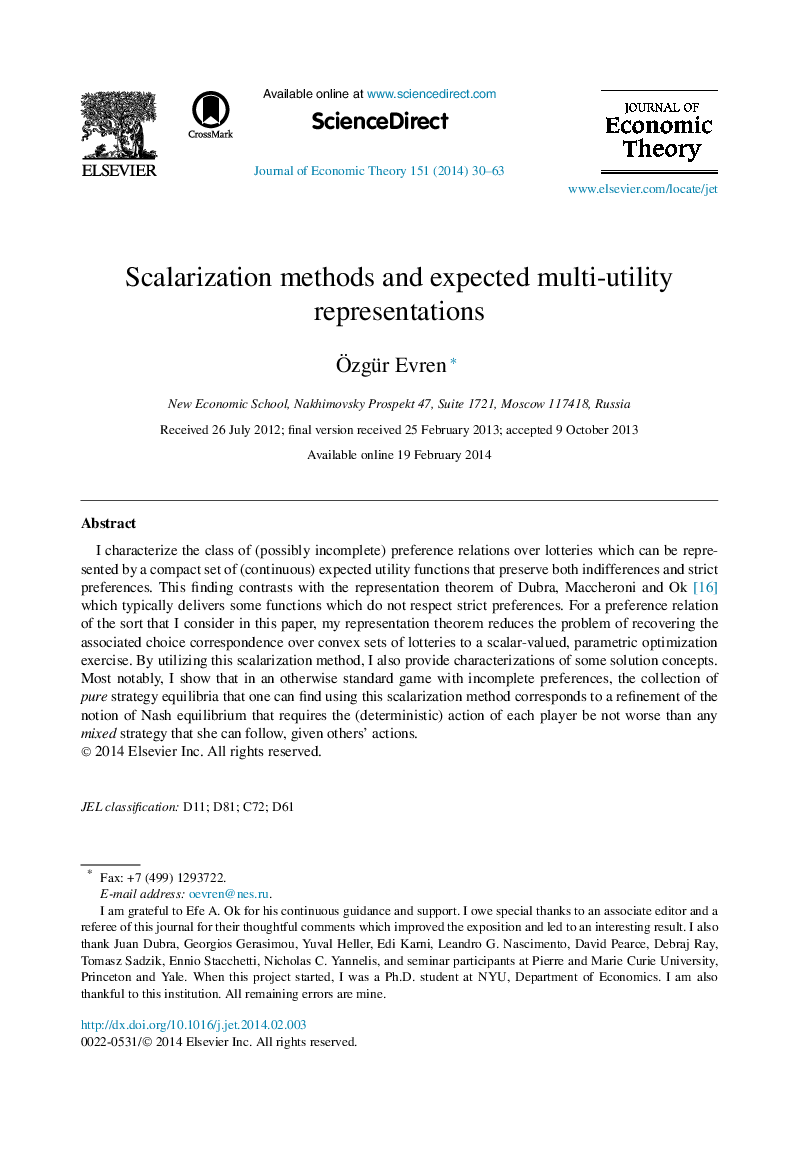| Article ID | Journal | Published Year | Pages | File Type |
|---|---|---|---|---|
| 957004 | Journal of Economic Theory | 2014 | 34 Pages |
I characterize the class of (possibly incomplete) preference relations over lotteries which can be represented by a compact set of (continuous) expected utility functions that preserve both indifferences and strict preferences. This finding contrasts with the representation theorem of Dubra, Maccheroni and Ok [16] which typically delivers some functions which do not respect strict preferences. For a preference relation of the sort that I consider in this paper, my representation theorem reduces the problem of recovering the associated choice correspondence over convex sets of lotteries to a scalar-valued, parametric optimization exercise. By utilizing this scalarization method, I also provide characterizations of some solution concepts. Most notably, I show that in an otherwise standard game with incomplete preferences, the collection of pure strategy equilibria that one can find using this scalarization method corresponds to a refinement of the notion of Nash equilibrium that requires the (deterministic) action of each player be not worse than any mixed strategy that she can follow, given others' actions.
